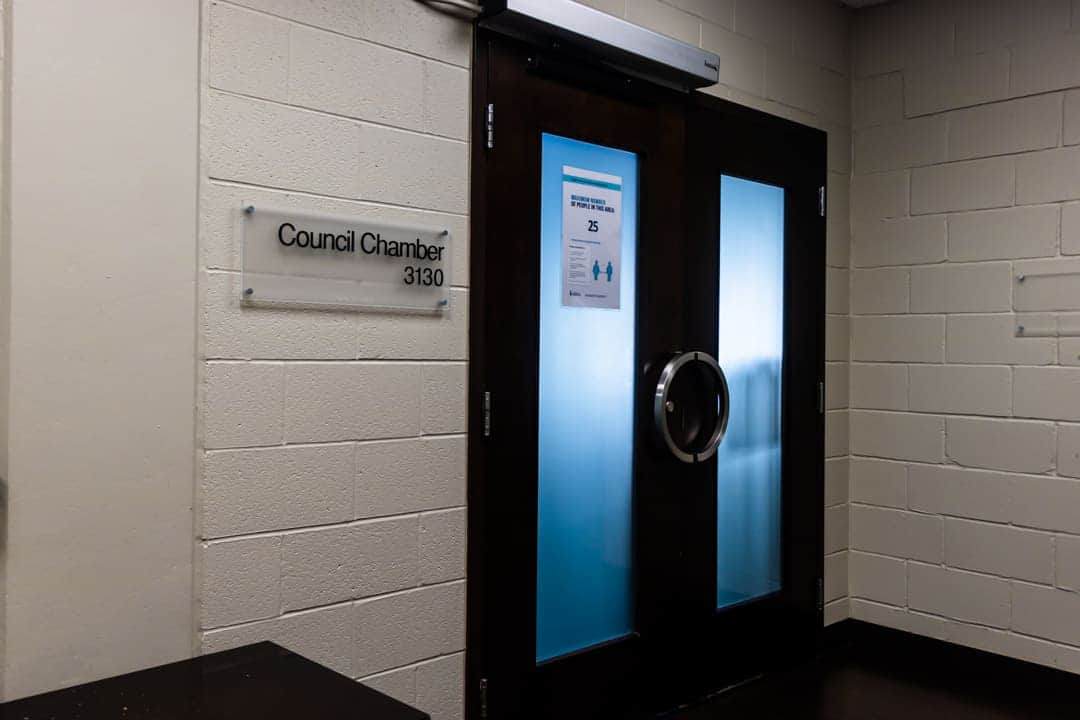From a new co-op program to a new major to an update on the second attempt for credit (SAC) policy, the January 11 UTM Academic Affairs Committee (AAC) meeting included multiple decisions that will directly impact UTM students.
New co-op internship program
The AAC passed a motion approving a co-op internship program that will involve programs in six departments at UTM: the departments of Biology; Chemical and Physical Sciences; Economics; Management; Mathematical and Computational Sciences; and the Institute of Communication, Culture, Information and Technology.
Starting in the fall 2024 semester, UTM students in 20 programs within these departments will be able to choose to enroll in a stream of their program that will prepare them to participate in a 12- or 16-month paid internship. Students in six additional programs in the Department of Management will be able to enroll in the program starting in the fall 2025 semester.
Vice-Dean, Academic Experience Andreas Bendlin told the council that enrolment requirements will vary depending on the department, and eligible students will apply after they’ve completed their first year or received four credits.
Students in the program will complete four asynchronous work-readiness modules before the internship to help prepare them for their workplace experience, and one additional module during the internship. Staff will guide the students throughout the recruitment process, and students’ full-time work will begin during the summer between their third year and their fourth year, or during the fall semester of their fourth year — leaving students on track to graduate in five years.
Participating in the program will cost both international and domestic students $3,960 in fees, $1,940 of which students would pay before the work placement begins. Students will not pay tuition during their co-op year. Bendlin clarified that the university has budgeted money to cover fees for students who cannot pay them initially. U of T will determine on a “case by case” basis whether students who can’t pay initially will pay back the university later or won’t have to repay the fees at all.
Bendlin noted that the program is initially partnering with a smaller group of departments to ensure it can place students in internships, hoping to add other departments “as quickly as possible.” He told the councillors that the program is part of UTM’s push to open opportunities for experiential learning that students seem to desire and contribute to “meaningful employment” in Mississauga.
A new math major
AAC members also passed a motion creating a new applied mathematics major at UTM. Currently, UTM students can enroll in a major in mathematical sciences. However, Associate Dean, Academic Programs Marc Dryer told the council that many students want to complete a degree more focused on applied math and have done so by pairing the mathematical sciences minor with a major, such as economics, which allows them to apply their math skills.
With this motion, students will have the opportunity starting in the fall 2024 semester to choose one of two streams under mathematical sciences: mathematics, which will retain the same admission and completion requirements as the existing mathematical science major, or applied mathematics. These streams will share common enrolment requirements and a common pool of courses but differ in their learning outcomes and some of their requirements.
The applied mathematics major will focus on a common set of tools students can use to model and study real-world issues spanning many disciplines, including economics, physics, and information sciences. Dryer said that applied mathematics streams are common at other universities, “so much so that not having one seems to be an exception.” He explained that this stream will give students a more “complete” understanding of these tools and allow them to apply their skills to more fields, compared to pairing the mathematical sciences minor with a different major.
Changing the Second Attempt for Credit policy
Under the current SAC policy, students can retake up to 1.0 credits that will count toward their CGPA and degree credits, and the grade and credit from the first time the student took the class will be marked as “extra” on their transcript.
Toward the end of the AAC meeting, the council passed a motion to amend the policy’s wording. Now if a student fails the course again after applying for SAC, the policy won’t apply, and the course won’t count toward their 1.0 credits available under SAC policy.



No comments to display.